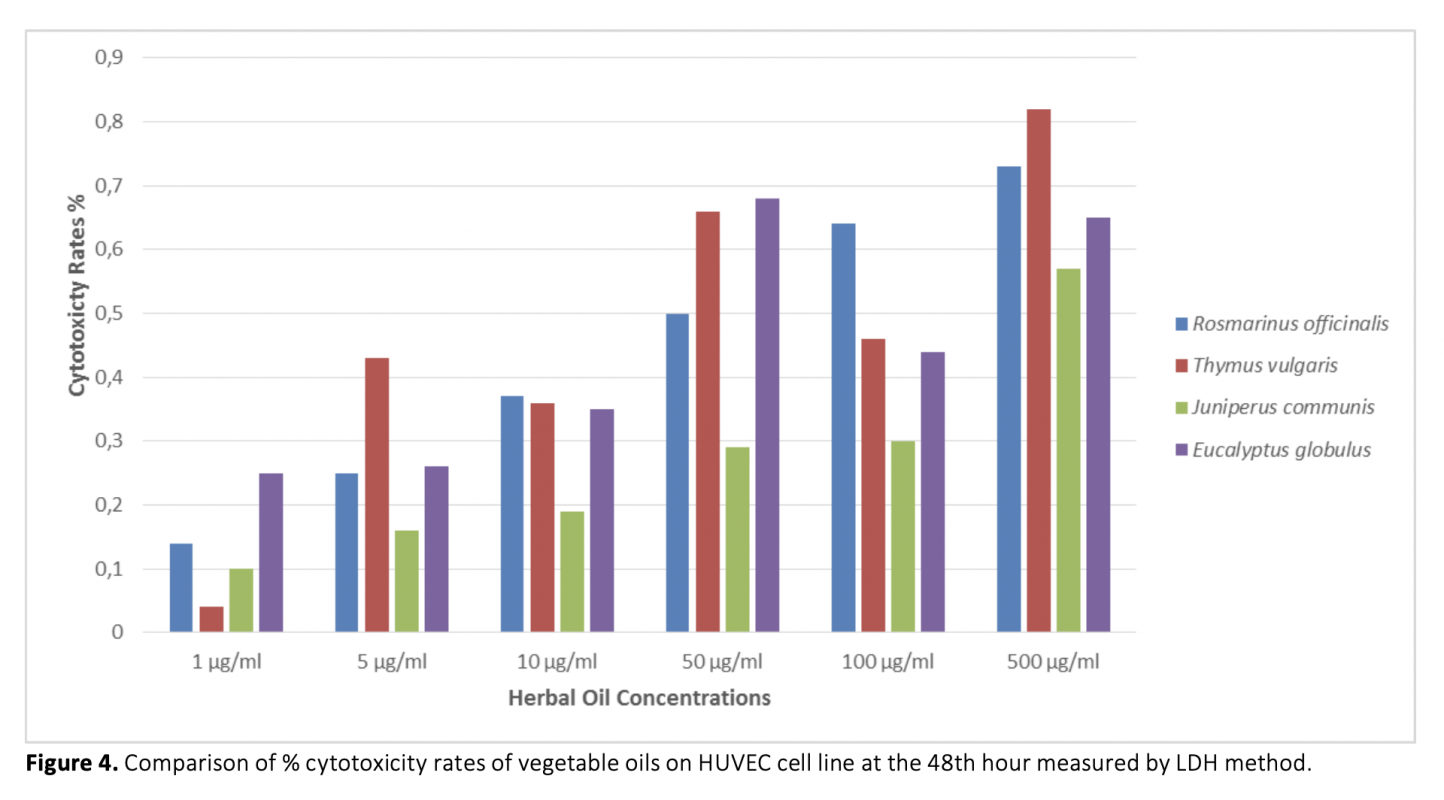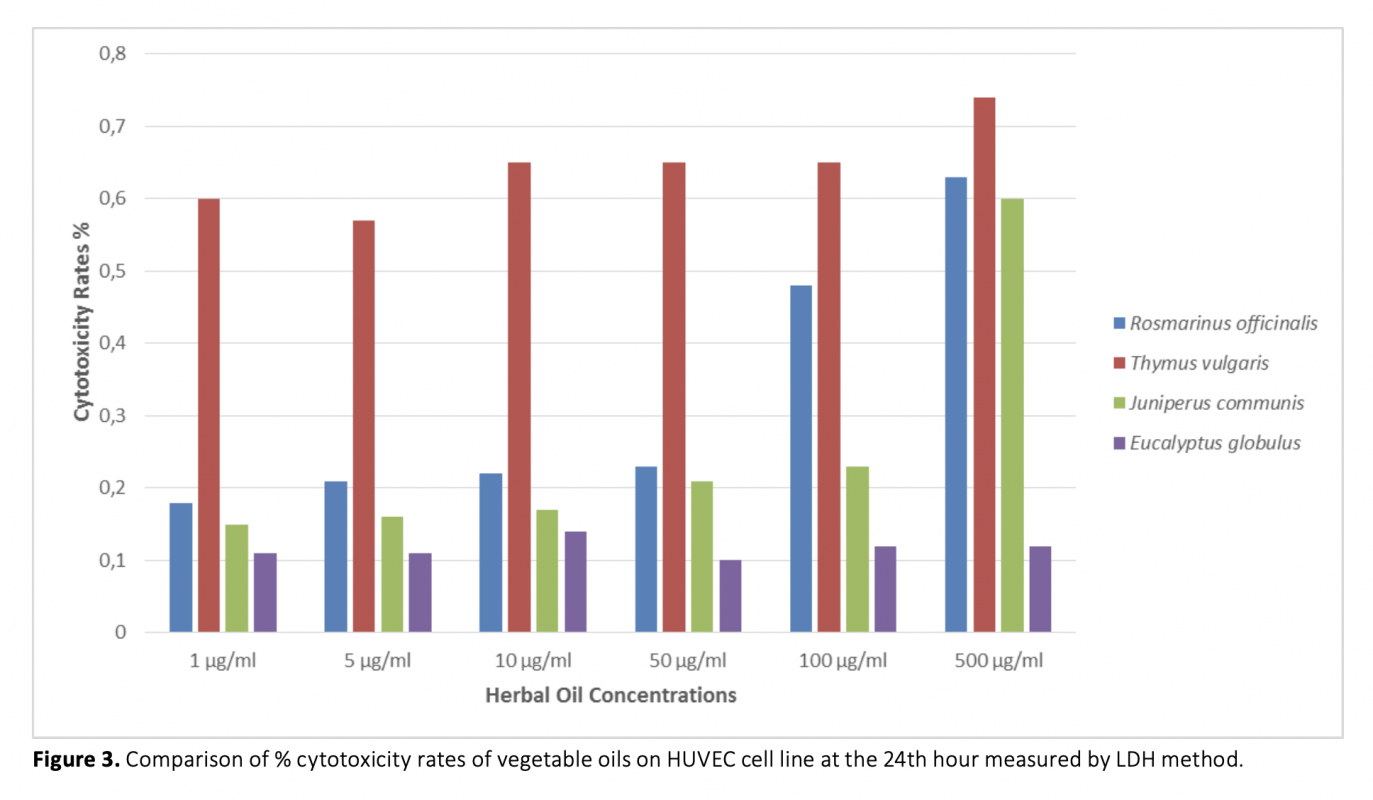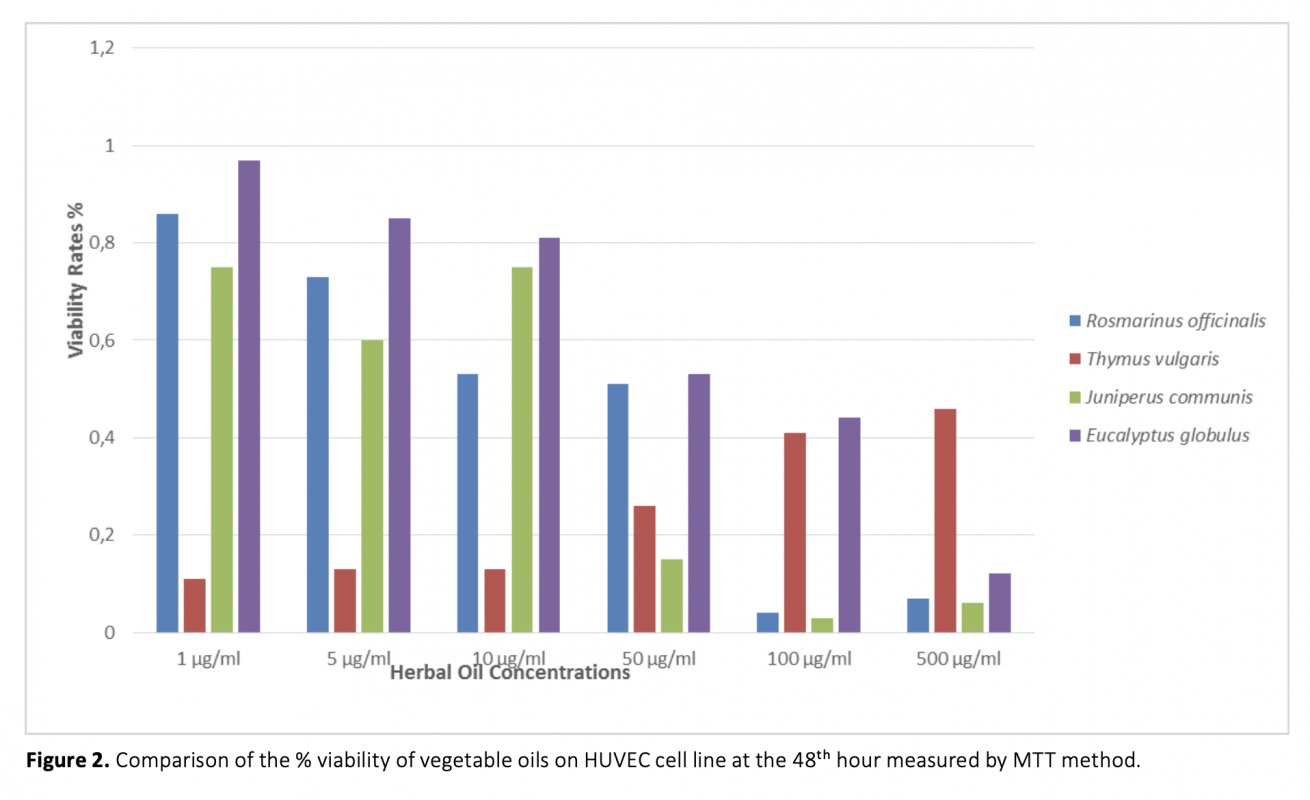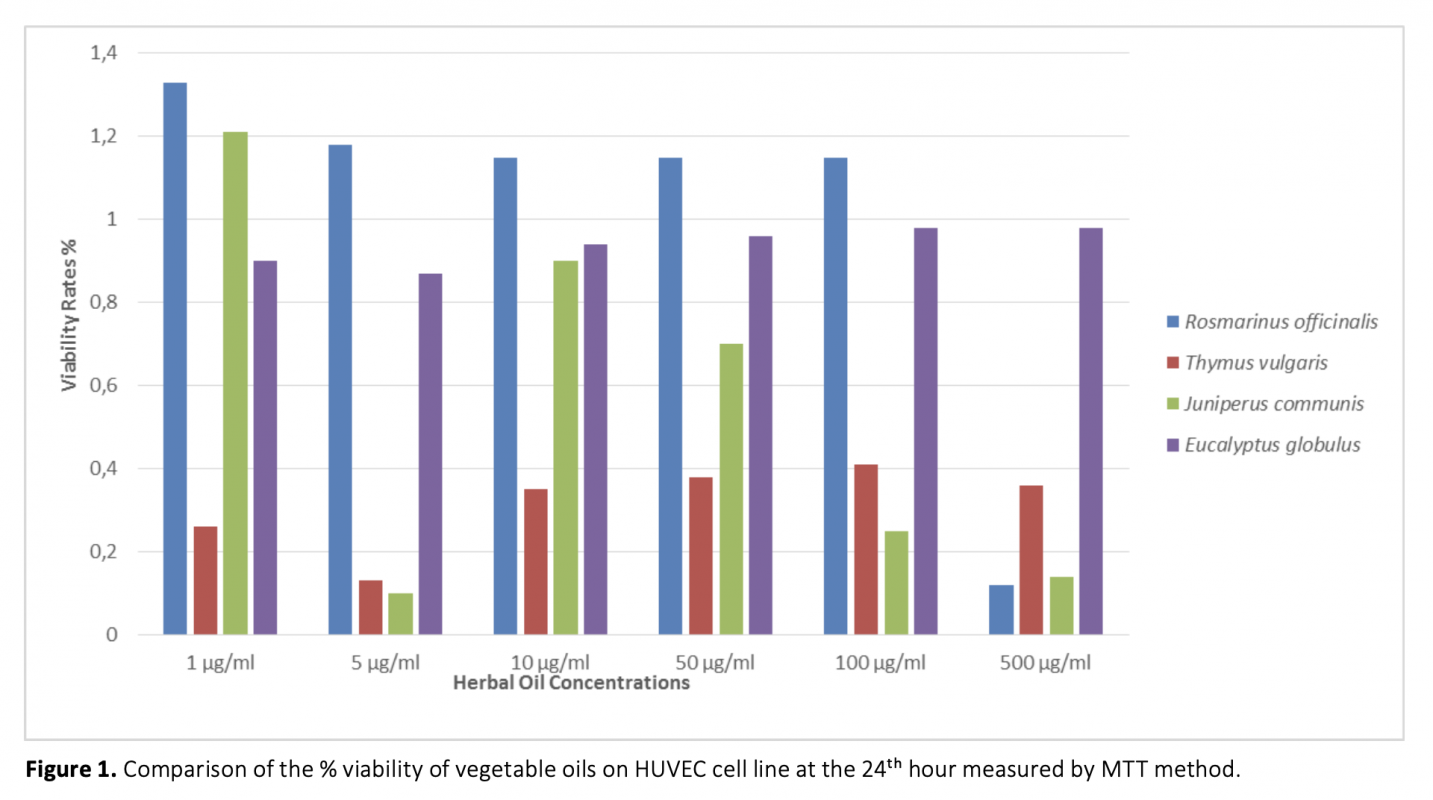Helicobacter pylori (H. pylori) infection is accepted as the most important chronic bacterial infection. In recent years, it is reported that the bacteria are developing resistance against the applied antibiotics. In order to increase the success rate, decrease recurrence and achieve eradication, it is very important to investigate nontoxic biocompatible herbal resources to be used in addition to antibiotic therapy. Herbal oils, obtained from plants are being used for various purposes for a long time, particularly in commercial and scientific fields. Therefore, in our study, we chose various herbal oils (Eucalyptus globulus, Juniperus communis, Rosmarinus officinalis, Thymus vulgaris) that are known to be effective against gastric and gastrointestinal tract diseases which do not have adequate investigations over H. pylori in the literature, and we aimed to investigate their antimicrobial activity over H.pylori and cytotoxic activity on Human Umbilical Vein Endothelial Cells (HUVEC) cell line. The antimicrobial activity is investigated by microdilution assay (MIC, MBC), and cytotoxic activity is investigated by MTT and LDH assays. As a result, it was found that Eucalyptus globulus (MIC: 2,81 %v/v, MBC: 5,62 %v/v), Juniperus communis (MIC: 0,35 %v/v, MBC: 0,70 %v/v), Rosmarinus officinalis (MIC: 2,81 %v/v, MBC: 5,62 %v/v), Thymus vulgaris (MIC: 0,70 %v/v, MBC: 1,40 %v/v) oils were effective against H. pylori. Besides, it was determined that Thymus vulgaris herbal oil had the highest cytotoxic effect, and Eucalyptus globulus herbal oil had the lowest cytotoxic effect on the HUVEC cell line.
Helicobacter pylori (H. pylori) enfeksiyonu en önemli kronik bakteriyel enfeksiyon olarak kabul edilmektedir. Son yıllarda tedavide kullanılan antibiyotiklere karşı bakterinin direnç geliştirdiği rapor edilmiştir. Tedavide başarı oranının yükselmesi ve rekürrensin azalması için, toksik olmayan biyouyumlu bitkisel kaynakların araştırılarak sistemik antibiyotik tedavisine ek olarak kullanılması ve eradikasyonun sağlanması son derece önemlidir. Bitkilerden elde edilen yağlar uzun yıllardan beri çeşitli amaçlara yönelik, özellikle ticari ve bilimsel alanlarda kullanılmaktadır. Bu nedenle çalışmamızda; genellikle mide ve gastrointestinal sistem rahatsızlıklarına iyi geldiği bilinen ve literatürde H. pylori üzerinde yapılmış yeterli çalışması bulunmayan çeşitli bitkisel yağlar (Eucalyptus globulus, Juniperus communis, Rosmarinus officinalis, Thymus vulgaris) seçilmiş ve H. pylori'ye karşı antimikrobiyal etkinlikleri ile Human Umbilical Vein Endothelial Cells (HUVEC) hücre soyu üzerindeki sitotoksik etkilerinin araştırılması amaçlanmıştır. Bitkisel yağların antimikrobiyal etkinlikleri mikrodilüsyon yöntemi ile (MIC, MBC), sitotoksik etkinlikleri ise MTT ve LDH yöntemleri ile incelenmiştir. H. pylori’ye karşı antimikrobiyal etkisini araştırdığımız, Eucalyptus globulus (MIC: 2,81 %v/v, MBC: 5,62 %v/v), Juniperus communis (MIC: 0,35 %v/v, MBC: 0,70 %v/v), Rosmarinus officinalis (MIC: 2,81 %v/v, MBC: 5,62 %v/v) ve Thymus vulgaris (MIC: 0,70 %v/v, MBC: 1,40 %v/v) 'in etkili olduğu gözlemlenmiştir. Aynı zamanda HUVEC hücre soyu üzerinde Thymus vulgaris bitkisel yağının en yüksek, Eucalyptus globulus bitkisel yağının ise en düşük sitotoksik etkiye sahip olduğu tespit edilmiştir.




Download Article in PDF (515.0 kB)